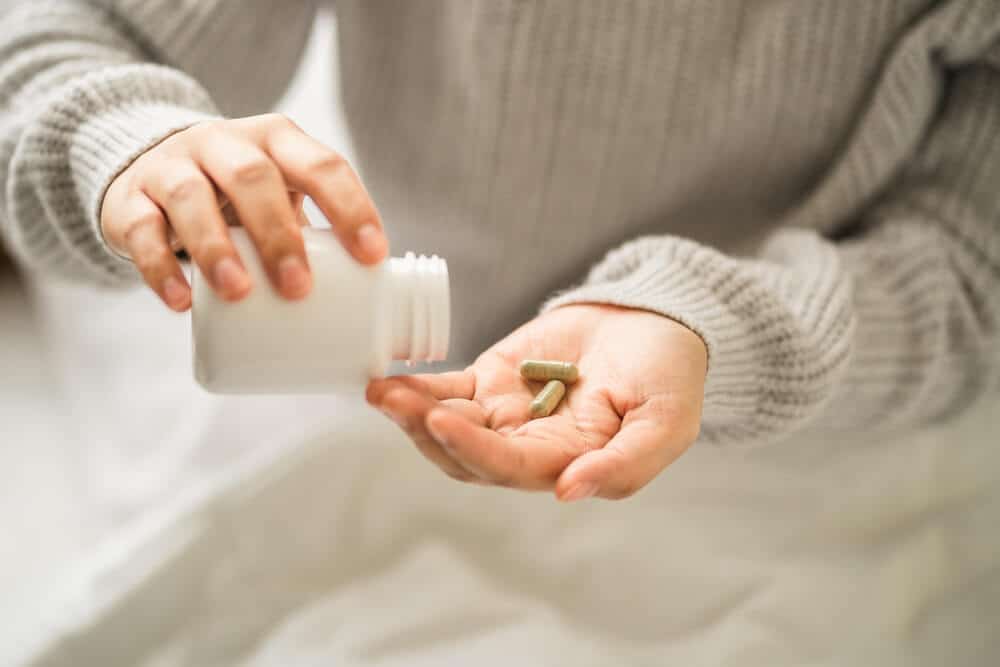Glucagon-like peptide 1 (GLP-1) medications have been receiving a lot of attention in the treatment of type 2 diabetes, obesity, and obesity-related conditions such as polycystic ovary syndrome (PCOS). However, there are some natural strategies to increase GLP-1 and support health goals. Keep reading to learn about how to increase GLP-1 naturally. While it may take longer for changes to be observed due to a lower potency, GLP-1 supplements may help support weight loss goals.
Natural GLP-1 supplements
While GLP-1 is produced by your body naturally, there are also several natural products that can help increase its production and secretion.
1. Berberine
Taking berberine supplements has been found to significantly increase the production and secretion of GLP-1 in the body. One animal study showed that it also increased insulin secretion and enhanced glucose tolerance in mice with obesity. This suggests that berberine could be a good solution for how to increase GLP-1 naturally as well as a possible adjunct therapy for those taking GLP-1 medication to aid with obesity and maintaining a healthy body weight.
A comprehensive review of articles studying the anti-diabetic properties of GLP-1 induced by berberine found that in addition to its role in insulin secretion, berberine-induced GLP-1 also prevented mitochondrial damage and reduced both adipose tissue fat and oxidative stress. As a result, berberine may be a promising additional treatment for type 2 diabetes mellitus.
2. Probiotics
Probiotics are known for their role in improving gut health, but they have also been found to increase GLP-1 levels in the body. Through glucose-induced GLP-1 secretion, they have been shown to enhance insulin secretion, making them a potential adjunct therapy to GLP-1 medication in treating type 2 diabetes.
Specifically, Akkermansia municiphila is a gut microbe that has recently been discovered to secrete a newly identified protein named P9, and this protein stimulates GLP-1 production and secretion. A. municiphila, which can be taken as a probiotic supplement, may be a good solution for how to increase GLP-1 naturally.
3. Psyllium
Psyllium, a soluble dietary fiber, is fermented in the gut to produce short-chain fatty acids which stimulate gastrointestinal motility and the release of GLP-1. (6) While more research is needed, psyllium supplements may be helpful in increasing GLP-1.
4. Curcumin
Several animal studies have found curcumin effective in enhancing L-cell numbers in the body, promoting and increasing GLP-1 secretion. While more human studies are needed, this suggests that curcumin may be effective in the treatment and prevention of diabetes and obesity-related metabolic disorders.
A clinical review also found that curcumin was an effective inhibitor of dipeptidyl peptidase IV (DPP-IV), an enzyme that degrades GLP-1. By blocking this enzyme, curcumin may prolong gastric emptying, increase insulin sensitivity, and reduce the blood glucose effects of GLP-1.
5. Ginseng
Ginsenosides, the major bioactive constituents of ginseng, have been shown to stimulate the secretion of GLP-1, providing possible anti-diabetic effects as a result.

Diet and lifestyle considerations
In addition to taking GLP-1 supplements, making certain diet and lifestyle changes has also been found helpful in naturally increasing GLP-1 levels. Specifically, eating more protein-rich foods, avoiding saturated fatty acids, and eating slowly and chewing more may have a positive impact on GLP-1 secretion and insulin levels. As a cooking alternative, olive oil has been found to induce GLP-1 response better than butter.
The bottom line
If you or your patients are struggling with type 2 diabetes, obesity, PCOS, or other related conditions, there are several natural GLP-1 supplements you can take or recommend to help increase the body’s GLP-1 secretion. If you’re a patient, always check with your healthcare provider to find the right option for your treatment plan.

